feature tech club inspires next generation of innovators
Take a keyboard, mouse, wires and a Raspberry Pi microcomputer. Add an LED, a temperature sensor, a buzzer and an ultrasonic distance sensor. Mix in a group of eager students and Chevron Canada’s Tech Club, and you may just have the next generation of innovators.
That’s what happened at Blessed Cardinal Newman Elementary Junior High School in Calgary. Teaming up with Diverse Learning and Career and Technology Foundation Teacher Megan Ferguson, a group of Chevron IT professionals spent two half days sharing their programming knowledge with approximately 25 students in Grades 7 through 9.
“As a part of our curriculum, we strive to get students interested in real career options, but schools don’t always have access to those careers, so we miss giving students the industry expert piece,” explained Ferguson.
“What the Chevron team did was invaluable; it doesn’t connect for students until they see someone who works in a field they’re interested in and has a real story, with tangible proof, that’s relatable – it puts the pieces together that they could do this. These people act like role models and inspire students.”
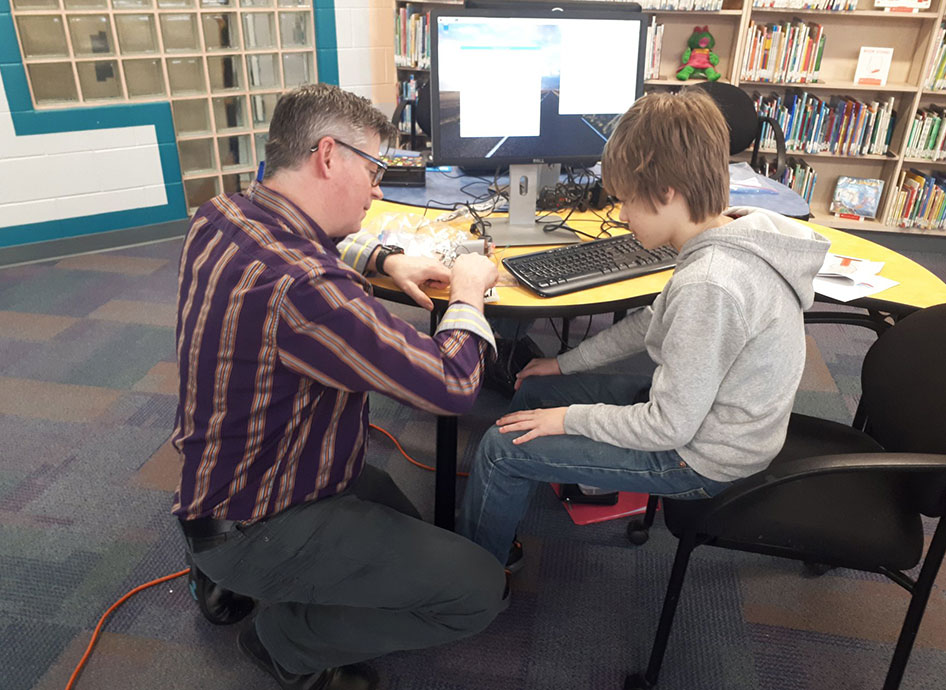
In each half-day class, members of Chevron’s Tech Club – Jana Berryman, Drew Stolee, DJ McNeill, Jeff Dueck – taught students basic Python coding language and applied it through a series of modules.
“It’s a really interactive lesson where students attach wires to lights, sensors and buzzers and use the code language they’ve learned that day to turn them on and make different patterns and sounds,” explained Dueck, IT Manager for Chevron Canada and course facilitator. “It’s an opportunity for students to learn code and build digital literacy, while also sparking creativity.”
Each student has his or her own computer station, Raspberry Pi and accessories like wires, a temperature sensor, ultrasonic distance sensor, LED and buzzer. A Raspberry Pi is a microcomputer with a central processing unit (CPU), onboard Linux operating system, Bluetooth/WIFI capability, display port, full-size HDMI video output, CSI camera port, four USB ports, and Micro SD card slot. Although small, these microcomputers pack a lot of potential, and when combined with some basic knowledge of code and a little curiosity, students can build their skill set.
“It gave them tangible, hands-on experience as they could see how what they were programming had an actual physical affect on something they had built themselves,” said Ferguson. “From there, they were able to spark ideas about what else they could do and how they could apply it in different applications. The lessons were simple, but they have further reaching affects.”
The response from the students was overwhelmingly positive. And according to Ferguson, one Grade 9 student equated the experience to being a kid in a candy store!
“I was pleasantly surprised by how engaged they were and how they were able to build their skills in those sessions,” said McNeill, geological and geophysical support analyst for Chevron Canada, of the students.
“The kids really wanted to be there – they asked if they could do this every day!” added Berryman, noting the value of being able to share her knowledge with students.
But it wasn’t just the students who had fun.
“We also had a great time being out and engaging the kids,” said Stolee, data warehouse analyst at Chevron Canada. “They had fun making code and switching the lights on and it was awesome to watch them learn and enjoy it.”
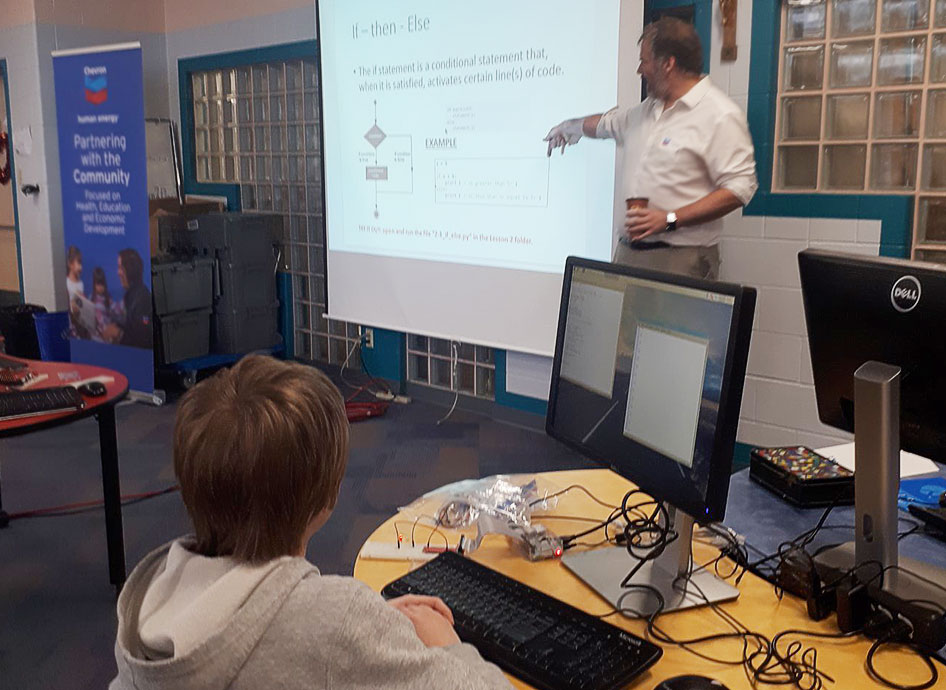
The Chevron Canada IT team started the Tech Club in 2017, as a way to drive innovation and creativity, stay relevant with technology, and develop new skills. Within the club, four programming modules were created and shared with the larger IT team as well as interested folks across Chevron Canada.
In the summer of 2017, the Tech Club put their modules to the real test with children of Chevron employees in a full-day programming session. The enthusiasm about learning programming was unanimous – a win for the Tech Club and the participants.
“Since then we’ve been looking at how we can share this knowledge more broadly, and so we jumped at the chance to do so at Blessed Cardinal Newman School,” said Dueck. “We want to inspire the next generation to be innovative and think creatively. And perhaps someday work at Chevron!”
Chevron is committed to advancing STEM (science, technology, engineering, mathematics) education initiatives. Through programs like Chevron Open Minds Science School and Let’s Talk Science, as well as employee-driven initiatives, we support youth opportunities to engage in STEM through hands-on activities and problem solving.
you might be interested in
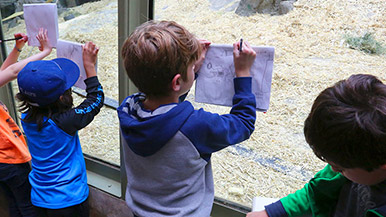
apply for a grant
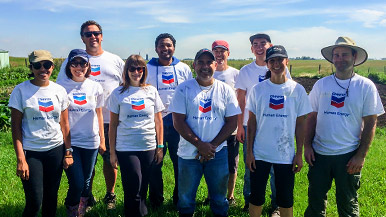
community investment
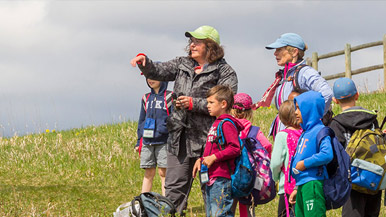
education partnerships